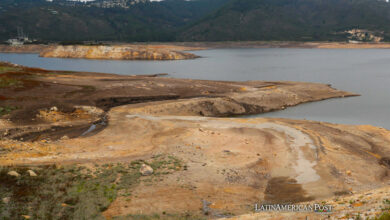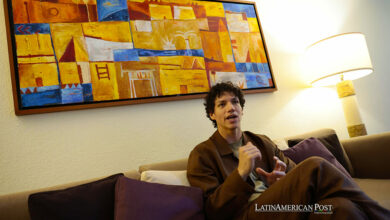Nicaragua: Ortega vs. the opposition
Listen this article
The death of a 'political prisoner' once again unleashed chaos, and the opposition organized a National Strike to demand the release of those in custody

Daniel Ortega's relationship with the opposition has always been in a non-diplomatic tone, which has led to hundreds of political prisoners in the country. The conflict with political prisoners has been that, in addition to being deprived of their freedom due to the multiple protests that have frequently occurred in the past months, the conditions of some have been deplorable, for which human rights abuses are reported.
Leer en español: Nicaragua: Ortega vs. la oposición
Due to the denunciations of abuses, international organizations such as the Inter-American Court of Human Rights (CIDH) and the Organization of American States (OAS) have finally intervened. Thanks to this intervention, the Government has been required to release the prisoners no later than June 18.
In the eyes of the opposition, these political prisoners are being abused and unjustly detained. On the other hand, for the Government, these people have committed crimes against common security and even classified them as 'terrorists'. Currently, in the country there are around 730 politicians, most of them common protesters and journalists, according to a report by the Committee for the Release of Prisoners and Political Prisoners. Of these, in addition, many are students, some have a house by jail and others are in bad conditions in the prisons of the country.
Although the government has apparently given in on this issue, gradually releasing some of the hundreds of prisoners, the media and opposition parties have denounced that no progress has been made in dialogues with the government to reach agreements. According to the BBC, since February there have been 300 released. The release of the prisoners has been one of the main demands of the opposition, but they have not yet freed political leaders, who are the ones who have demanded the most freedom.
Read also: Protests in Brazil: a country divided in two by Bolsonaro
After the government had said on several occasions that it would begin with the release of all the 'political prisoners', and if it had not complied, it was on May 17 that the issue broke out again. The death of a person who was deprived of liberty by demonstrations. According to Univisión, Eddy Antonio Montes died after being shot in the middle of a riot registered in La Modelo prison and, according to the official version, the custodian fired in self-defense, but the Committee of Political Prisoners and witnesses inside the prison they assure the opposite ". This event ended in the resignation of the opposition (the Civic Alliance for Justice and Democracy) to the dialogues with the government.
As a result of the death of Montes, the resignation of the opposition in the search for an agreement, the Nicaraguans, especially in Managua, wanted to go out again to the streets in the called National Strike, the fourth in the last time. In the middle of the little conciliatory attitude of the government, it "unveiled its program for consolidating peace and stability, where they include tax audits even for the media," Univisión said. In addition, the banking sector was the only one that could not participate in the National Strike, because the Superintendency of Banks assured that there would be sanctions of not opening to the public.
After the strike, on Sunday, May 26, the citizens reported that they tried to go out to the streets to protest, but the police presence, with their already known violent acts, did not allow the demonstrations to be perpetrated. According to Univision, "riot police surrounded private restaurants and even deployed inside shopping centers that had participated in the national strike last Thursday."
More than a year of crisis
On April 18, 2018, a series of protests began in the streets of Nicaragua, based on economic reforms decreed by President Ortega that would affect some sectors such as pensions. The response of the government after the demonstrations was to oppress them completely, which led to the death of hundreds of people, including journalists who were simply on the streets covering what was happening.
After more than a year of political crisis, the demonstrations are no longer only for pension systems or economic reforms, the Nicaraguan people denounce that there is a dictatorship in the country. This, in addition to the hundreds of deaths are another reason to criticize the government. According to the IACHR, the crisis has left more than 320 dead, "while several local NGOs count to 596 and the Government recognizes 199," reports the newspaper El Comercio.
LatinAmerican Post | Juliana Suárez
Translated from "Nicaragua: Ortega vs. la oposición"





